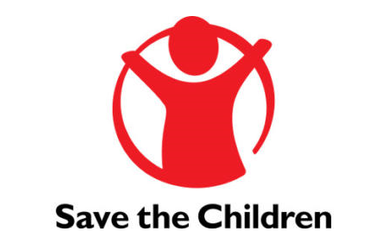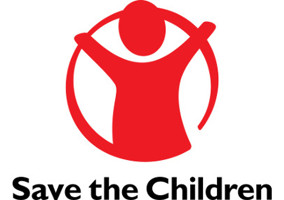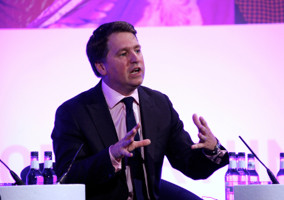Save the Children failed to handle complaints about the behaviour of its former chief executive properly, amounting to “mismanagement”, according to the Charity Commission.
The regulator published the findings of its statutory inquiry today, nearly two years after opening the investigation, and a day after some details were leaked to national newspapers. But it has not taken any formal regulatory action against the charity.
The Commission said the charity should have been more open with the regulator, its own trustees and the public when complaints were raised in 2012 and 2015, and were subsequently made public in 2018.
Its report identified weaknesses in the workplace culture at Save the Children. It also said the charity failed to follow its own processes and in 2018 made public statements that were “not wholly correct”.
Save the Children said it accepts the findings and has apologised.
The Commission inquiry did not address the substance of the allegations made against Save the Children’s former chief executive, Justin Forsyth, and former policy director, Brendan Cox, but looked at how the charity responded.
It said that Save the Children’s actions had wider implications for public trust.
Helen Stephenson, chief executive of the Charity Commission, said: “Creating that culture is not just about putting the right systems and processes in place; it also requires leaders who model the highest standards of behaviour and conduct, and who are held to account properly and consistently when they fall short.
“This responsibility is especially pronounced in large, household name charities: their leaders are powerful, and highly respected. The impact of failures in leadership in such charities can also have implications for public trust and confidence beyond the charity itself. So they must use that power responsibly, and in a way that reflects legitimate expectations of charity.
“Save the Children UK let complainants and the public down. It must work hard now to rebuild its reputation.”
Trustees in the dark
The Commission’s report says that not all trustees were aware of allegations about Forsyth until August 2015.
It said waiting too long to make them aware had “constituted mismanagement in the administration of the charity”.
“In order to discharge their trustee duties effectively, the Commission considers that it is essential that all trustees are informed about serious and credible allegations concerning the conduct of their CEO”, the inquiry report said.
It also says that it is unclear if a written warning was ever given in 2012. The Commission says that it has seen drafts of such a warning but Forsyth told the regulator that he did not receive a letter.
In 2015 an independent review was carried out by law firm Lewis Silkin LLP. Part 1 was regarding the handling of the complaints against the chief executive and part 2 was regarding the wider culture at the charity.
The Commission said this review identified weaknesses in the human resource department, which did not fully share legal advice with the trustees and did not adequately explain the options to complainants.
The Commission was also critical of the charity's decision to withhold the second part of the Silkin report from the full board because it was concerned about leaks, and instead offer oral briefings.
“The full board and the incoming CEO should have had access to the written Part 2 Report. If there were concerns about leaks, various solutions were available including a reading room or the provision of numbered copies.”
While Save the Children filed a serious incident report to the Commission in 2015, the regulator said it should have identified the chief executive as the subject of complaints.
Media statements ‘appeared to trivialise what happened’
In 2018, details of the 2012 and 2015 complaints were reported in the press, and the Commission has accused Save the Children of providing media statements that were “not wholly correct”.
It was particularly critical of the charity’s claim that it had investigated complaints at the time, when they had been handled through informal resolutions.
The Commission said it contacted Save the Children to remind it of the importance of being transparent with the press.
It added that the way Save the Children handled the media scrutiny was not received well by the complainants.
“In particular they were upset that the charity kept denying there were formal complaints and that this appeared to them to be trivialising what happened to the women involved,” the report said.
Making progress
In 2018 Save the Children asked Dr Suzanne Shale, an ethics consultant, to carry out an independent review to help it strengthen its culture.
She carried out a follow-up review in, published last autumn, which noted a number of positive developments.
The Commission noted this in its report.
Save the Children: ‘We are sorry’
Kevin Watkins, who became CEO in 2016 having previously served on the board between 2009 and 2016, said: “I unreservedly apologise to the women affected by the behaviour of these two senior executives. The harm they suffered was compounded by a failure to respond appropriately to complaints and then by our defensive handling of media inquiries about the cases.
“Our staff are passionate about our work for children. They have a right to expect the highest standards of support and protection. I’m determined to work with them to build an organisational culture that reflects our values.”
Charles Steel, the interim chair, added: “The trustees and leadership fully accept these findings and we are profoundly sorry that we let the women and our organisation down. The inquiry makes clear that every part of our organisation must be held to account for our duty of care to staff and for living up to our values. While we are making progress in improving our culture, we have more work to do, and this will continue to be a critical priority for our organisation.
“We must repay the trust of our staff and supporters. Only with that trust can we fulfil our mission to help the children who need us most.”
Related articles












